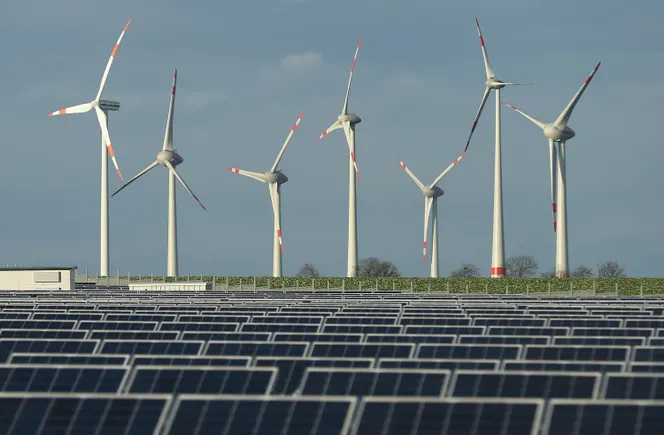
Dive Brief:
- A group of Congressional Republicans are asking their party to further tweak proposed changes to clean energy tax credits that the House Ways and Means Committee included in its reconciliation bill text.
- The proposed budget reconciliation bill would decrease the credits for a number of clean energy technologies after 2028 and phase them out entirely after 2031, as well as additional requirements to qualify for the credits and an early sunset for their transferability. Rep. Jen Kiggans, a Virginia Republican, led 13 other House members in a joint statement Wednesday seeking to extend the transferability mechanism through the phase-out period and make other changes.
- The GOP tax bill, as currently constructed, passed the House Budget Committee late on Sunday, after the committee failed to clear the bill on Friday. However, as Kiggans and the other lawmakers seek changes to the bill to further protect the clean energy tax provisions, others in the party are looking to speed up the phaseout.
Dive Insight:
While the original Inflation Reduction Act had technology-neutral clean energy production and investment credits available until 2032, the House Ways and Means Committee’s bill text would move the sunset dates up and phase them out over a four-year period. Companies would be able to receive 80% of the credit values in 2029, 60% in 2030, 40% in 2031, with the credits phasing out entirely in 2032. Another nuclear power production credit would be phased out on the same schedule.
Kiggans and her colleagues said they commended the committee “for including reasonable phase-out schedules” for the credits, but said in the May 14 joint statement that a few more changes are needed “to fully realize the intent of these phase-out schedules.”
“While many of these provisions reflect a commitment to American energy dominance through an all-of-the-above energy strategy, we must ensure certainty for current and future energy investments to meet the nation’s growing power demand and protect our constituents from higher energy costs,” the statement said.
Kiggins was joined on the statement by Reps. Andrew Garbarino, Mike Lawler and Nick LaLota of New York; Mark Amodei of Nevada; Don Bacon of Nebraska; Rob Bresnahan of Pennsylvania; Juan Ciscomani of Arizona; Gabe Evans and Jeff Hurd of Colorado; Dave Joyce of Ohio; Young Kim and David Valadao of California; and Dan Newhouse of Washington.
The members said retaining the transferability mechanism for the entirety of the credits’ lifecycle would provide companies “with the flexibility necessary to make long-term investments in American energy.”
In addition to extending the tax credit transferability mechanism through the entire phase-out period, the House lawmakers are also asking that adjustments be made to the “Foreign Entity of Concern provisions” and for a “placed in service” standard to be included in the proposed changes.
The foreign entity of concern provisions are “overly prescriptive,” according to the lawmakers, and “should be revised to allow companies additional time to reorganize their supply chains, ensuring a strategic and successful transition.” The “placed in service” provision, which adopts an Internal Revenue Service standard of preparedness for the credits, would require a project to be ready and available for use to qualify.
Kiggins and other moderate Republicans backing last week’s statement said the “placed in service” standard is misaligned with the phaseout schedule, and should be replaced in the text with a “start construction” standard. They said that adjustment “is essential to supporting the energy development needed to meet the growing power demand and protect thousands of high-quality American jobs in communities across the country.”
Clean energy developers and industry groups are “hoping that this draft isn’t the final text,” Robert Neifert, commercial and residential solar developer Solar Gain’s director for business development, said on a press call organized by Clean Energy for America last week.
“The way that the current rules are written with the placed in service rule … we’re going to have to stop selling projects at the current tax rates in a year-and-a-half,” Neifert said.
Gilbert Campbell, founder and CEO of utility scale solar developer Volt Energy Utility, said on the May 13 call that the bill as written would lead to less private investment, increasing the price of building projects and leading to small businesses taking a “big hit.”
“Frankly, if it does pass as is, from a private investment standpoint, a lot of projects will not get built,” Campbell said. “And that’s going to lead to rising electricity rates.”




















